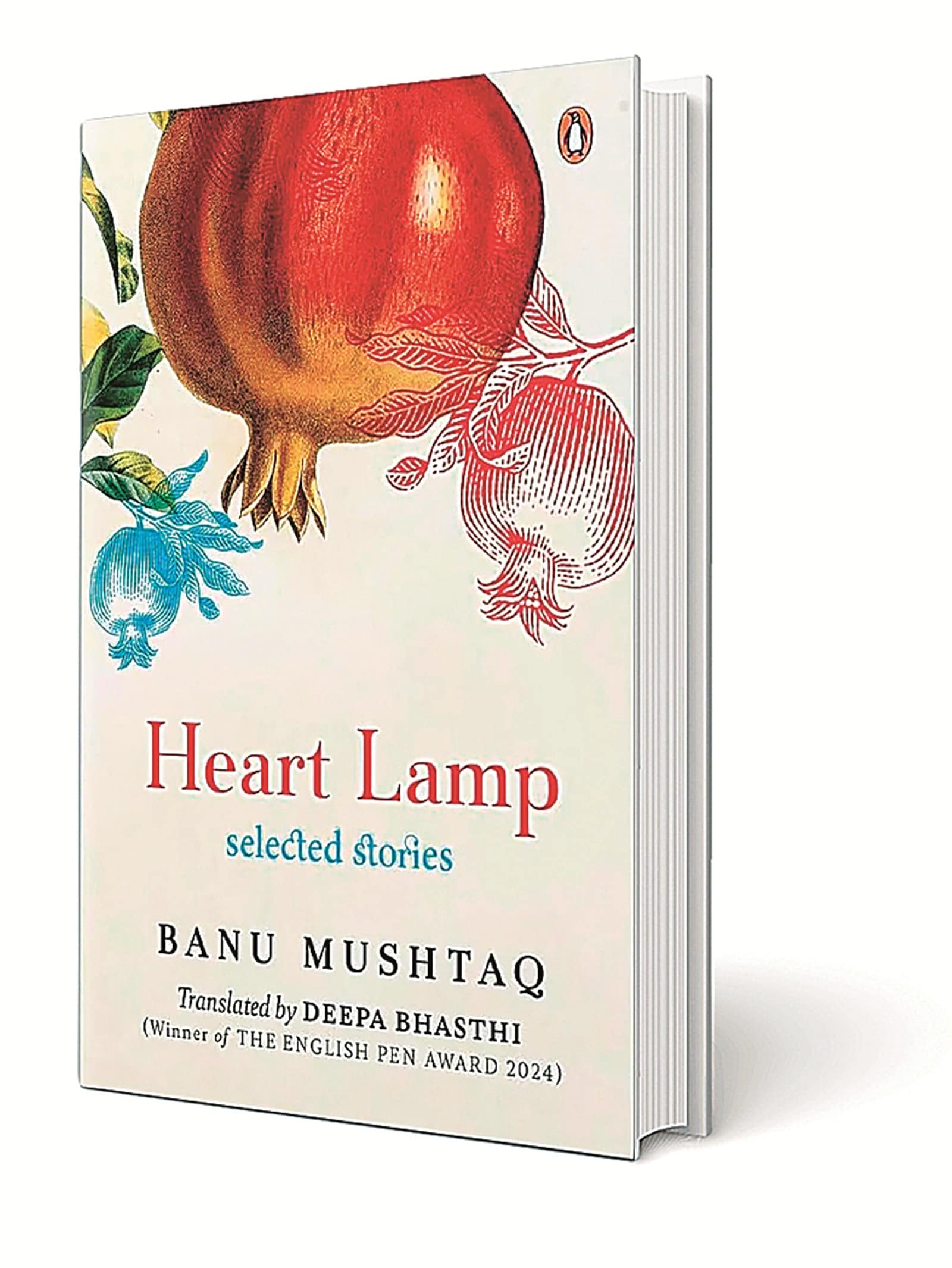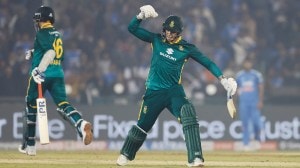Banu Mushtaq’s Heart Lamp tells stories of Muslim life with all its contradictions and textures
In mainstream Indian literature, Muslim women are often flattened into metaphors — silent sufferers or tropes in someone else’s moral argument. Mushtaq refuses both. Her characters endure, negotiate, and occasionally push back — not in ways that claim headlines, but in ways that matter to their lives
 Burqa clad Muslim women arrive to cast their votes at a village near Amroha in Uttar Pradesh, India, Wednesday, Feb. 15, 2017. (AP Photo/Manish Swarup)
Burqa clad Muslim women arrive to cast their votes at a village near Amroha in Uttar Pradesh, India, Wednesday, Feb. 15, 2017. (AP Photo/Manish Swarup)There’s nothing flamboyant about Heart Lamp. No sweeping declarations, no fiery rhetoric. And yet, it burns with a steady, insistent glow. In this collection of stories, Banu Mushtaq does what only a rare writer can: she brings into view lives that literature often glances past — not by explaining them, but by rendering them with clarity, depth
and grace.
Mushtaq doesn’t write to prove a point. Her stories don’t posture. They inhabit. The women who populate Heart Lamp don’t raise slogans. Their resistance is quiet, lived and deeply personal — often taking shape through small acts of autonomy. For instance, in ‘Black Cobras’, Amina finally opts for a tubectomy after birthing seven children — a request long denied by her husband. She leaves home for the procedure, asking him to care for the children in her absence. It’s a moment that recalls Nora from Ibsen’s A Doll’s House. The defiance here is not ideological, but lived.
Set within the Kannada Bandaya (rebel) tradition that emerged post-Emergency, Mushtaq’s work both belongs to and diverges from the canon. Bandaya literature foregrounded caste and class with raw urgency, but Mushtaq — one of the few Muslim women in that orbit — turns her gaze inward, to the gendered boundaries maintained by religious conservatism. Her concerns aren’t peripheral to the movement’s spirit but an expansion of its possibilities.
That Heart Lamp has found its way onto the Booker Prize shortlist is significant. It marks only the second time a Kannada author has been recognised by the Booker institutions — the first being UR Ananthamurthy’s nomination in 2013 for his body of work. Mushtaq’s recognition, however, rests on a single work. And that book alters how we see Indian writing in translation. These aren’t stories that defend or exoticise Muslim life. They’re told with full awareness of its contradictions and textures.
In mainstream Indian literature, Muslim women are often flattened into metaphors — silent sufferers or tropes in someone else’s moral argument. Mushtaq refuses both. Her characters endure, negotiate, and occasionally push back — not in ways that claim headlines, but in ways that matter to their lives.
Misogyny, in Mushtaq’s stories, is not a thesis. It’s ambient — woven into rituals, expectations, family silences. It’s the air her characters breathe. They aren’t given the space for grand rebellion; their defiance unfolds in kitchens, bedrooms, prayer rooms, and their own silent soliloquies. What appears ordinary becomes charged with meaning.
Religion, too, is not a prop. It’s a terrain — sometimes a source of strength, often of struggle. Mushtaq handles it carefully, never oversimplifying it to villain or virtue. Her characters experience faith not as abstraction, but as emotional and social reality — one that shapes and sometimes constrains them.
What makes Heart Lamp so affecting is its refusal of neat resolution. Take Mehrun, the protagonist of the title story. She attempts suicide, then pulls back when her daughter hugs her, crying. The scene is tender, even redemptive — but Mushtaq doesn’t let that moment erase what surrounds it. The pain remains. That lingering is the point.
 Mushtaq’s characters endure, negotiate and occasionally push back — effectively, if not dramatically (Amazon)
Mushtaq’s characters endure, negotiate and occasionally push back — effectively, if not dramatically (Amazon)
The stories are not devoid of drama — only of spectacle. In ‘High-heeled Shoe’, a pregnant woman is forced by her husband to walk in stilettos that don’t fit — an absurd act driven by envy of his wealthier sister-in-law (and sadly, his mad love for his wife). Her pain becomes surreal, even hallucinatory: the unborn child begins conversing with her. The cruelty is heightened, not softened, by this surrealism.
Perhaps the most searing story, again, is ‘Black Cobras’, where Aashraf is abandoned by her husband for giving birth to three daughters. She tries to win him back, and when her youngest falls ill, she seeks help from the mosque committee. The mutawalli sides with her husband’s right to polygamy, while declaring that Allah decides who lives and dies. The child dies, and after her funeral, the women of the neighbourhood turn on the once-respected man with a not-so-quiet contempt. There is no catharsis. Only a landscape of shock and grief and power misused.
Mushtaq’s women don’t ask for pity. They ask to be seen. They stake small claims to agency in lives that rarely allow them. In doing so, they remind us that power doesn’t always announce itself. Sometimes it lies in refusing erasure — in choosing to live, to endure, to claim one’s interior life even when the world refuses to see it.
There is, in the end, something radical about Mushtaq’s quietness. In a literary culture that rewards spectacle, Heart Lamp insists on the value of attention — to lives lived at the edges, to unnoticed choices, to the strength it takes simply to persist. That is Banu Mushtaq’s quiet power. And it demands to be read.
- 01
- 02
- 03
- 04
- 05































